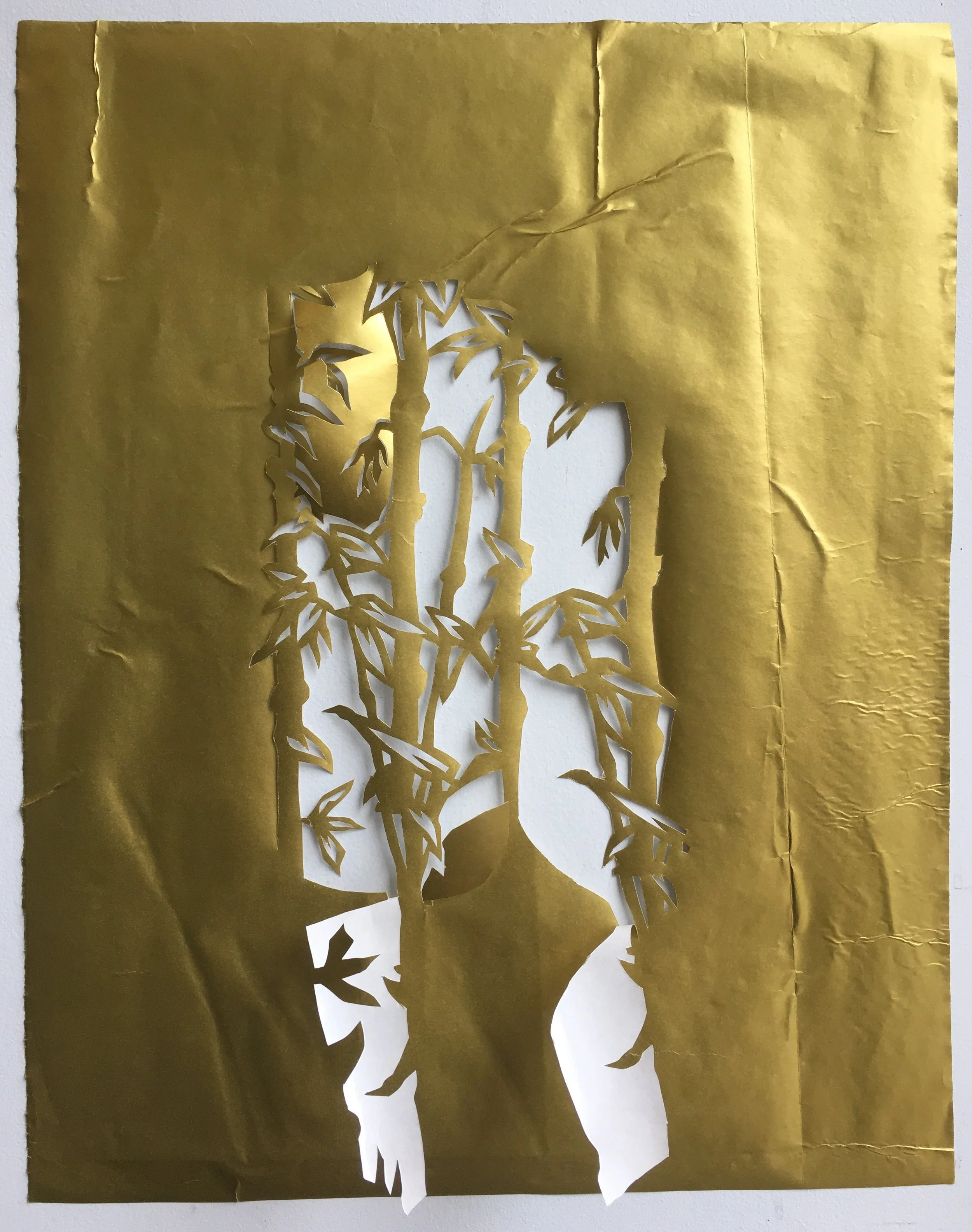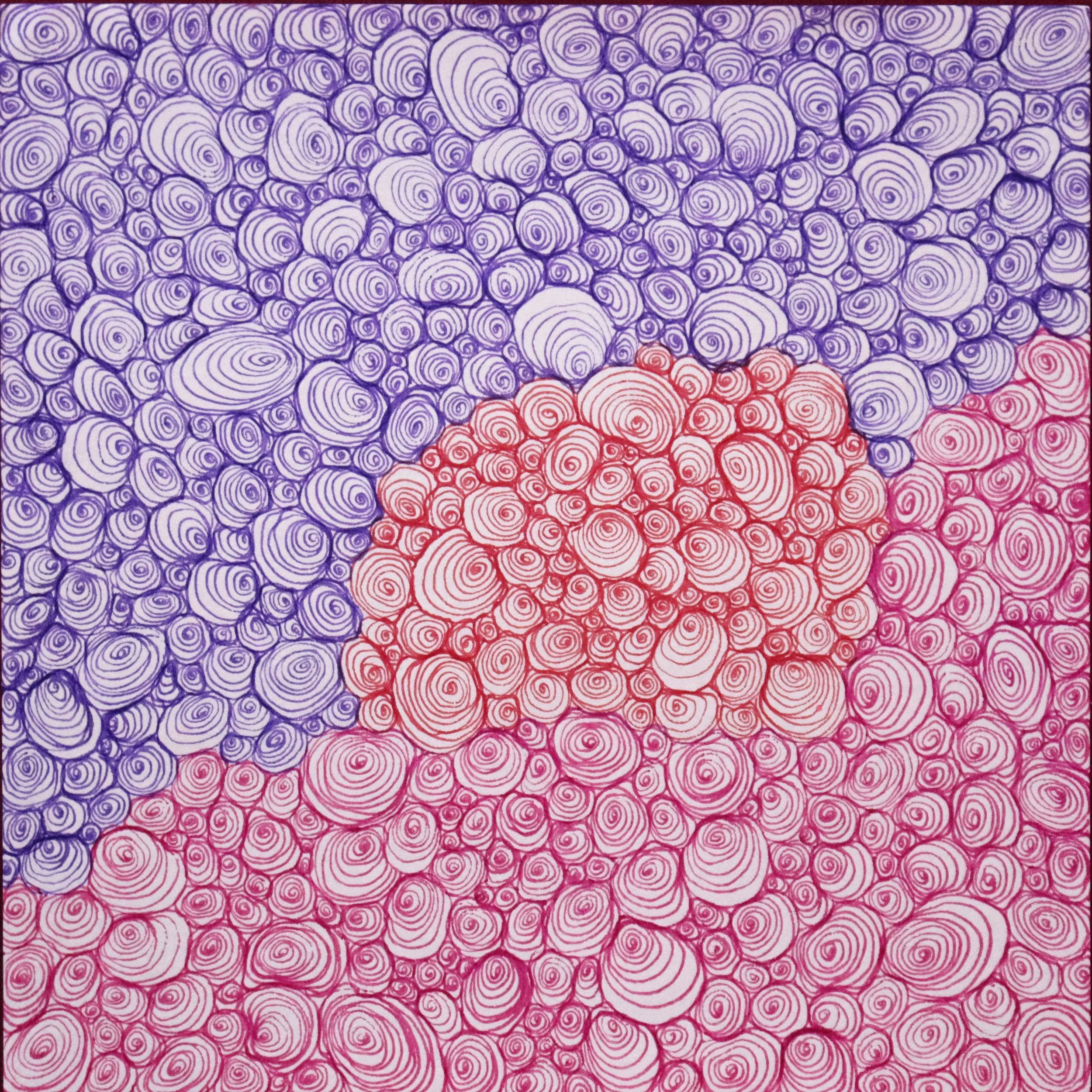Snow Phoenix
By Ted Serafin
Moth-like, she’s drawn to the freezer section of grocery stores. They ape the cold of her hometown, a clot of farmhouses an hour from Harbin. When she landed in Singapore, the still heat and white sunlight pressed down on her small frame, making her wince.
She misses the brusque seasons of Northern China, the stiff breezes and peaceful nights, the frost-clouds of her breath in winter. When the missing gets too bad she sneaks into the grocery store, any grocery store, during her twenty-minute lunch break, slides open a freezer door and lets the chill waft over her. She’s not brave enough to leave without buying something, worried that she’ll break some kind of rule otherwise. She knows they love rules here.
Huiying came to Singapore because a man had come to her village.
“Everyone is rich there,” he said. “They work like demons and they look for ways to spend their money.” Despite the autumn breeze he wore a thin silk shirt that shimmered when he moved. When he smiled, Huiying saw gold glint off his front incisor.
Stress was a killer on that little island, he explained happily. They’d pay well for traditional Chinese therapy.
Huiying had battered her grandparents’ feet with reflexology treatments since she was a child. They encouraged her to go, in a way that brooked no counter-argument. Why would she argue? As they never tired of reminding her, they’d shouldered the costs of raising Huiying when her mother ran away. Now their charge was twenty-three, unmarried, and with those wide-set eyes and crooked teeth, likely to remain so. So go. Earn back some money. Gong-Gong scrunched his eyes until his face was a carpet of wrinkles, and peered at the man’s brochure.
“Nine thousand yuan, you could make, girl. Every month,” he rasped in wonder. “Just for rubbing the feet of some lie-flat housewives.” This was before she learned, upon landing on that furnace of an island, how much she had to repay the service for setting her up with the job and a place to stay. As Gong-Gong flipped through the brochure, smoke trickled from his nostrils like a dragon’s whiskers. You never saw him without a cigarette screwed into his spade of a hand. Now that she was here, she missed the warm plum-like scent of his Zhonghua cigarettes. Everyone in Singapore seemed to smoke the expensive Western brands that smelled like death.
how is life among the rice-eaters was the first text her grandparents sent. In the 1960s, they had both been dispatched, along with their entire village, south to the rice paddies of Hunan for collective labour. The fifteen-hour days locked in wet mud had cemented their northern preference for noodles over rice. And if Singapore was even further south than that, no doubt all they ate was grainy white mifan. Whenever she treated herself to a bowl of dongbei noodles (absurdly pricey at four dollars, but they tasted of home), Huiying thought of her grandmother. No meal could pass in their drafty brick house without the old woman smacking her lips and repeating her favourite maxim. “I would rather have no house to live in…”
With a rumble, Gong-Gong would finish her sentence: “…than no noodles to eat.” Their eyes would crinkle at each other. They were never an affectionate couple, but the line seemed like a daily declaration of love.
Still holding the stiff new pages of her first passport, now bearing a single stamp, Huiying was herded into a shoebox dormitory with eight other girls. Chinese, Vietnamese, Filipina. The two other Chinese girls, Sichuan city types with soft curves and silky hair, wrinkled their nose at Huiying’s accent and spoke only to each other. Sweating in the airless night, her cheek against a scratchy Hello Kitty pillow, she wondered how people lived in this city. The dorm had a bulky air-conditioner but the landlord, a tiny Malay man with an egg-shaped head, had taken the remote. Too expensive, he said in high, terrible Mandarin. It was the only Chinese phrase he knew apart from ‘No’, ‘Don’t know’ and ‘Gong xi fa cai’.
She befriended Phuong, a sweet 40-something who worked in a nail salon for six dollars an hour and slept above her. At night Phuong would migrate down from her rusty upper bunk and they would sit, heads bowed over their phones, sharing photos of home. Huiying didn’t want to reveal the grey clot of farmhouses in her photo album — they’d only make her homesick — so she searched for ‘Harbin Ice Festival’. She’d been once or twice, and still remembered the three-storey steam train made of snow; frosty dragons painted neon red as fireworks burst above. Phuong goggled and asked “How cold?” She seemed suitably impressed when Huiying said “Very, very.”
Her grandparents were happy she made a friend.
Is she from your province, they texted.
No, a nice girl from another country. Vietnam.
Gong-Gong says you cannot speak to her.
When he was young, Gong-Gong had a class full of friends who, bursting with martial pride, signed up to fight against the country in 1979. He still had a box of newspaper clippings about The Self-defensive Counterattack Against Vietnam. And a headful of memories of friends dead and maimed in their filthy jungles. He would not have a granddaughter rubbing up against one of them.
Huiying considered lying to them, but she was hopeless at deceit. If they found out she was still friends with the girl, who knew what they would do. She pictured a wall of silence to her calls home or worse, a flat refusal to let her return home at all.
The next day, a smiling Phuong brought a bowl of pho from a hawker stall for her new friend to try. Huiying tucked her hair behind her ears and leaned down to sniff the rich, fragrant broth. Eyes lowered, she said quietly, “No good” and “Smell bad” and “Too hot, too hot.”
Nights in the fluorescent box of their dorm became even lonelier. She overheard the Sichuan girls talking about a Chinese game called Heavenly Ice Planet. The name alone made her download it, even though it cost a staggering fifty-five yuan. But it pleased her to hold a universe of movement in her hands, to flick and glide her snow phoenix spaceship around shimmering stars, to see the point meter explode whenever she reached a new level.
That night she stayed up playing until dawn leaked through the small dorm window. She was just about to quit — another galaxy had been unlocked — when the screen went black: Snow Phoenix, do you want to continue? She clicked yes, and it asked for her credit card details. She was about to put the phone down when a pop-up appeared, as if the game sensed the movement. For just three hundred yuan she could upgrade to an exclusive version, one that would triple her spaceship’s speed and strength. Thus armed, she could compete for points, and the highest score each month would win 8,688. Dollars, not yuan. An unearthly sum.
Work was like going to sleep. Six days a week, her mind clicked into autopilot as her small, strong fingers took over. Her customers were a mixed bag. Baggy-eyed men in suits with dripping gold watches who jogged down from their offices at midday. Languorous housewives with thickset, kind faces and sleek phones. At Chinese New Year one of them slipped Huiying a bag of sweet, chewy pineapple tarts she devoured in seconds. A green-eyed, balding laowai turned up, who giggled when she touched his feet, before relaxing into sighs. He returned the next day, and every day for a week. He spoke no English. She wasn’t sure where he was from, but when he bobbed his head in thanks he would rasp, “Obrigado.” She liked the throaty sound of it, like swirling honey in the mouth. On the final day he gave her five notes, each bearing ‘20 Euro’ on them. The boss was walking past and, once the old man was gone, held out her manicured hand. “I change the money for you. You won’t know where to go.” Her Mandarin sounded like a six-year-old’s.
Two days passed and the boss said nothing. Huiying screwed up her courage to ask.
The boss reached into her smock. “Mm, I was meaning to give you.”
She handed over twelve Singaporean dollars.
She must have seen Huiying’s frown. Switching to a Mandarin-Singlish bark she said, “European money is worth even less than Chinese yuan. You’re lucky sia. I oreddi must haggle to get that much you know.” She tutted. “Next customer coming in five minutes.”
Ten hours of grinding her fingers into craggy heels and plump toes left Huiying drained. She would walk into the baking night air half-drunk with tiredness, palms shiny with massage oil. Only the cold blue light of store freezers revived her. Fingers tingling with joyous cold on the bus home, she would dive into the game, eating up points as the bright little ship on her phone grew stronger. Sometimes she came just a few points short of the grand prize. Keep trying, Snow Phoenix! the game said. Don’t give up.
One night her grandmother texted to ask if everything was okay in Singapore. There was a strange cold going around. Their village was in quarantine. Damn nuisance. Gong-Gong insists on keeping windows closed. Whole house smells of plum cigarettes.
A few weeks later the boss told Huiying to put on a mask. New rules. Customers, she was less strict with. Many, especially the laowai, seemed baffled by how to wear one, choosing to let the mask slip below their moist lips. After she tended to a monstrously large German, he coughed and reached into his pocket, fishing out five one-dollar coins which he pressed wetly into her hand. “Danke!” he said brightly.
She started to feel tired. Heat radiated out of her limbs. Her head became a dumb weight on her shoulders. She didn’t dare tell anyone she felt ill. She kept going to work, even though her sweaty knuckles felt like they were made of ragged glass. One night she asked one of the Sichuan girls to pinch her back to release the infernal heat. The girl tossed her smooth curtain of hair and said “Ten dollars.”
It worked, for the night. When she woke up the next morning she could barely swallow, could taste nothing. She lay in her bed and dozed. She dreamt someone was pouring honey down her throat, and woke up struggling for air. The landlord, his egg-like head vibrating, came in wearing a mask and a pair of swimming goggles. He frowned at her sweating body.
“No choice,” he sighed in his high voice. “Have to call ambulance.”
Huiying was in a cocoon of plastic. A shadow rippled through the material and she croaked something to it. A plastic mask pumped thick waves of air into her chest. She tried to call again but was too tired. She slept for what felt like days. Sometimes she imagined she was driving the snow phoenix spaceship, arcing round planets with a thrill of speed as she climbed up the leader board.
The machines around her were howling. Huiying woke to their bright chorus. It reminded her of the game, trilling at her that she was levelling up, her snow phoenix ship was nearing the grand prize, she just had to pay another three hundred yuan. Each exhale was like sinking a bucket into a dark mossy well. Each inhale was like hauling it up again with burning arms. The plastic cocoon was a cauldron that trapped all the heat leaking from her pores. She imagined folding herself into a grocery freezer, blanketing herself with frozen peas.
A nurse pops her head over the grocery freezer glass, swimming into vision. She wears a face mask and a ring around her head that holds a convex plastic shield. The mask has slipped a little, and Huiying sees a deep livid indentation across the bridge of the nose. The nurse has deep-chocolate skin and honey-coloured eyes. She speaks in a lilting voice. “Hello, dear. I wish I could understand you, but I don’t have any Chinese. I wish you had some Tamil. It’s okay. It’s okay.”
Huiying’s hand crabs to the side of the plastic, fingers opening and closing. She wants her phone. She must reach the next level. She is so close.
The nurse’s beautiful eyes are on her. She places her gloved palm against the plastic screen.
Huiying does the same, for a few seconds.
Ted Serafin is the pen name of a writer based in Singapore. He's in love with literature, chocolate, his wife, and cats (not necessarily in that order).
If you’ve enjoyed reading this article, please consider making a donation. Your donation goes towards paying our contributors and a modest stipend to our editors. Singapore Unbound is powered by volunteers, and we depend on individual supporters. To maintain our independence, we do not seek or accept direct funding from any government.









‘But later… we didn’t talk about love. We talk about the land and its people.’ – a short story by Kaushik Ranjan Bora, translated from the Assamese by Aruni Kashyap.